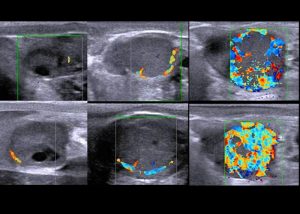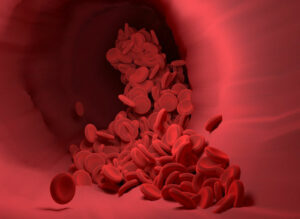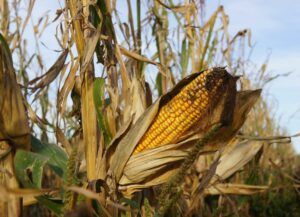Fernando Díaz
Using exogenous fibrinolytic enzymes has been proposed as a method to increase fiber digestibility mainly in low-quality feeds. Specifically, xylanase is an enzyme that helps break down β-1,4-linked backbone of arabinoxylans from cell walls, and it has been reported that its supplementation increases milk yield in lactating dairy cows.
Researchers from Virginia Tech (Yang et al., 2019) evaluated the effects of adding xylanases to lactating cow diets based on corn silage or sorghum silage. The diets were formulated to contain about 32 percent of either corn or BMR sorghum (low lignin) silage in a dry matter (DM) basis and 8% of grass hay as forage sources, and a pelleted concentrate including cereals, protein meals, minerals, and vitamins. The thermostable enzyme was added to the pellets at a rate of 1.5 grams per kilogram of total DM. According to the manufacturer, the xylanase product was an endo-1,4-β-xylanase from Aspergillus oryzae with no cellulosic or proteolytic activities and with a minimum activity of xylanase of 1,000 fungal xylanase units per g.
Protein contents were similar in the four diets (14.8 – 14.9% in a DM basis) but on average, corn silage diets were greater in starch content (28.8 vs. 25.2%) and lower in forage fiber (18.1 vs. 22.3%) than sorghum silage. After 10 days of adaptation, the four diets were tested in 24 Holstein cows during 19 day-periods. Moreover, the researchers evaluated diet nutrient digestibility using an external marker.
The investigators reported that supplementation with xylanase did not affect cow performance regardless of forage type. However, silage type had effects in milk production: cows fed corn silage-based diets produced more milk and milk protein, and cows fed sorghum silage-based diets produced more milk fat.
In summary, cows receiving the enzymes tended to consume less DM (1.0 and 1.5 kg in corn and sorghum silage diets, respectively) but milk yield (51.6 vs. 48.9 kg/day in corn and sorghum diets), milk fat yield (1.68 and 1.81 kg/d in corn and sorghum diets), and milk protein yield (1.48 kg/day in corn diet and 1.36 kg/d in sorghum diet) were not affected by xylanase addition. Interestingly, xylanases reduced DM, protein and fiber digestibility in the corn silage diet, but they did not affect sorghum silage based-diet digestibility.
In conclusion, supplementation with exogenous fibrinolytic enzymes did not influence milk production or milk composition of high-producing cows.
Reference
Yang, Y., G. Ferreira, B. A. Corl, and B. T. Campbell. 2019. Production performance, nutrient digestibility, and milk fatty acid profile of lactating dairy cows fed corn silage- or sorghum silage-based diets with and without xylanase supplementation. J. Dairy Sci. 102:2266–2274.











